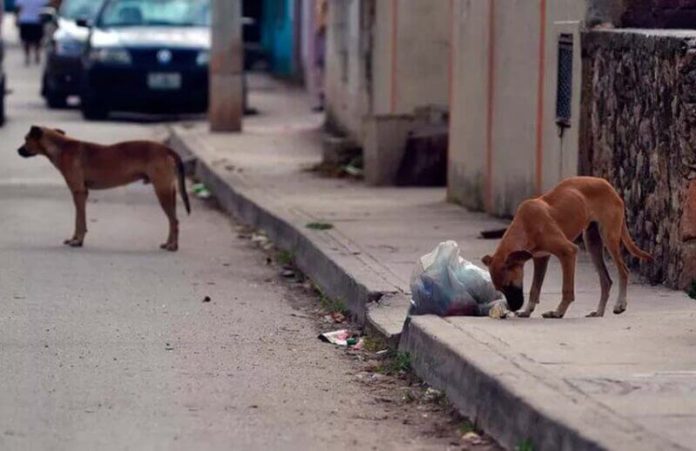The local government in Mérida, Yucatán, has backtracked on a controversial new law prohibiting residents from leaving food in public places for animals.
The regulation, which included large fines for those who broke it, drew criticism from animal rights advocates and inspired protests, leading the government to reconsider.
The proposed fines ranged from 8,962 to 448,100 pesos (US $430 to $21,600) for “leaving food in public places.” But animal advocates said that given the number of stray animals in the city, denying them food amounted to animal cruelty.
“Rather than prohibit this activity, we should be inviting citizens to take in these animals, and give them a real home,” said María Vivas Sierra, local manager of the Institutional Revolutionary Party (PRI).
In a Tuesday press conference, local officials explained that the rule did not prohibit feeding animals, but rather leaving food unattended in public places, which could contribute to populations of pests like rats, and animal-borne diseases. They said that giving food directly to a street animal was still allowed.
But opposition continued and on Wednesday it was announced on Facebook that Mérida Mayor Renán Barerra Concha had instructed the city not to officially publish the new law until it had been reviewed and possibly revised.
“Citizens of Mérida can rest well assured that their voice will always be heard and taken into account by the local government,” the city wrote on Facebook.
Despite the announcement, plans moved ahead for two animal rights protests on Saturday, the newspaper El Universal reported.
With reports from El Universal, PorEsto! and Diario de Yucatán
